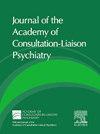2024 ACLP 关于培训咨询联络精神病学住院医师的建议。
IF 2.5
4区 心理学
Q2 PSYCHIATRY
Journal of the Academy of Consultation-Liaison Psychiatry
Pub Date : 2025-01-01
DOI:10.1016/j.jaclp.2024.11.001
引用次数: 0
摘要
导言:尽管住院医师会诊联络精神病学(CLP)培训发生了快速变化,包括毕业后医学教育认证委员会对普通住院医师培训要求的提高、高级实践提供者的更多利用以及冠状病毒-2019大流行的影响,但自2014年以来,会诊联络精神病学学会(ACLP)一直没有更新CLP住院医师培训的建议。2021 年对住院医师培训项目主任进行的一项全国性调查显示,过去十年中,各个项目的 CLP 轮转结构发生了许多变化:我们召集了一个由8名在地方和国家层面的住院医师和研究员教育中担任领导职务的ACLP成员组成的工作组。该项目获得了ACLP执行委员会的批准,并通过三个阶段的迭代过程进行:结果:就四个领域的34项建议达成了共识,包括结构问题、教师监督、正式课程和评估以及选修经验:住院医师必须花足够的时间进行CLP轮转,以达到相关的里程碑。鉴于顾问应提供独到的见解,因此,在住院医师能够提供专家意见并领导团队时,才是安排核心 CLP 轮转的理想时机。教员必须具备 CLP 方面的专业知识,并能对受训者进行直接指导和监督。应开设单独和正式的 CLP 教学课程,并提供选修机会以补充培训:这些建议旨在指导住院医师培训项目主任优化所有住院医师的 CLP 培训,包括那些最终将获得 CLP 研究金的住院医师。为所有住院医师打下坚实的 CLP 基础,对于确保他们有能力为病情复杂的患者提供精神科护理、与其他专科的同事合作以及培养学员对从事 CLP 职业的兴趣至关重要。本文章由计算机程序翻译,如有差异,请以英文原文为准。
2024 ACLP Recommendations for Training Residents in Consultation-Liaison Psychiatry
Background
Despite rapid shifts in consultation-liaison psychiatry (CLP) training in residency, including increasing general residency training requirements from the Accreditation Council for Graduate Medical Education, greater utilization of advanced practice providers, and effects of the coronavirus-2019 pandemic, the Academy of Consultation-Liaison Psychiatry has not updated recommendations for residency training in CLP since 2014. A national survey of residency program directors in 2021 suggested many changes to the structure of CLP rotations at individual programs over the past decade.
Objective
These recommendations are intended to guide residency program directors toward optimizing CLP training for all residents, including those who will eventually pursue CLP fellowship.
Methods
We convened a workgroup of 8 Academy of Consultation-Liaison Psychiatry members holding leadership positions in residency and fellowship education on local and national levels. The project was approved by the Academy of Consultation-Liaison Psychiatry Executive Council and conducted via a three-stage iterative process.
Results
Consensus was reached on 34 recommendations across four domains, including structural issues, faculty supervision, formal curriculum and evaluations, and elective experiences. Residents must spend sufficient time on CLP rotations to achieve relevant milestones. Given that consultants are expected to offer unique insight, the ideal placement of core CLP rotations comes at a time in residency where residents are able to provide expert opinion and lead teams. Faculty expertise in CLP and availability to provide direct supervision and oversight to trainees are essential. A separate and formal CLP didactic curriculum should exist, and elective opportunities should be offered to supplement training.
Conclusions
Establishing a strong CLP foundation for all residents is essential for ensuring competency in providing psychiatric care for medically complex patients and collaborating with our colleagues in other specialties, as well as fostering trainee interest in pursuing a career in CLP.
求助全文
通过发布文献求助,成功后即可免费获取论文全文。
去求助
来源期刊

Journal of the Academy of Consultation-Liaison Psychiatry
Psychology-Clinical Psychology
CiteScore
5.80
自引率
13.00%
发文量
378
审稿时长
50 days
 求助内容:
求助内容: 应助结果提醒方式:
应助结果提醒方式:


